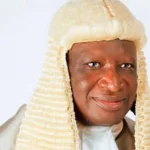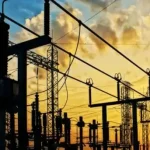
The Nigerian National Petroleum Company Limited (NNPCL) has dismissed recent protests demanding the resignation of its Group Chief Executive Officer, Mele Kyari, over rising petrol prices. NNPCL spokesperson Olufemi Soneye stated that Kyari is not responsible for the price increase. He attributed the nationwide fuel price hike to increased import costs.
“Unfortunately, the protesters lack understanding of the sector. If they were informed, they would know that the GCEO is not responsible for the fuel price increase. In fact, he ensured Nigerians had access to fuel at N620 per litre for over a year, even when the landing cost was above N1,100”, he told media.
Earlier, some protesters gathered at NNPCL’s headquarters in Abuja to demand for Kyari’s resignation over the nationwide increase in petrol prices. The protests were organized by civil society groups who stated that Kyari’s leadership has failed to address ongoing issues in the oil sector. The demonstrators called for an end to what they described as a fraudulent fuel subsidy system.
They further argued that full deregulation would bring transparency and competition to the sector. Protest leaders alleged that the importation of adulterated fuel has harmed vehicles and livelihoods across the country.
“NNPC Ltd. does not import adulterated fuel. If anyone has evidence to the contrary, they should bring forward samples of any such fuel imported by NNPC”, Soneye stated in his response.
He claimed that group and individuals were motivated by selfish interests to distract the NNPCL from achieving President Bola Ahmed Tinubu’s roadmap for the sector. This, according to him, involves ensuring energy security for Nigeria.
Meanwhile, petrol prices have skyrocketed significantly under the current administration. This has intensified economic pressures on Nigerians. Data from the National Bureau of Statistics (NBS) showed that the average price of petrol in Nigeria rose by 24 per cent in September, from N830.46 per litre in August to N1030.46. The rising cost of petrol has driven up expenses in transportation and food and pushed inflation to 32.7 per cent in September.
Read More:
- Nigeria’s Power Grid Collapses Again, Marking the Tenth Collapse in 2024
- Burkina Faso President Traoré Uncovers Massive Embezzlement Scandal in Humanitarian Ministry
About The Author
%s Comment
Leave a Reply Cancel reply
Related Articles
Tinubu Government Delays Release of Signed Tax Acts to the Public
Four days after President Bola Tinubu announced the signing of four tax...
ByMayowa DurosinmiJune 30, 2025As Tinubu Urges Africa-Caribbean Unity in Saint Lucia, Over 272 Nigerians Killed in June Alone
While Nigerians deal with deadly violence, worsening hunger, and mass flooding, President...
ByWest Africa WeeklyJune 30, 2025You Can’t Tax a Dead Economy: Nigeria Is Suffocating Under Its Own Policies
As Nigeria’s Central Bank clings to its benchmark interest rate of 27.5...
ByWest Africa WeeklyJune 30, 2025“Wike is Not a Blessing to Us, He’s a Disaster” — Workers Protest in Nigeria’s Capital Over Unpaid Wages, Poor Working Conditions
Staff members of the Federal Capital Territory Administration (FCTA) in Abuja barricaded...
ByOluwasegun SanusiJune 30, 2025













I do trust all the ideas youve presented in your post They are really convincing and will definitely work Nonetheless the posts are too short for newbies May just you please lengthen them a bit from next time Thank you for the post